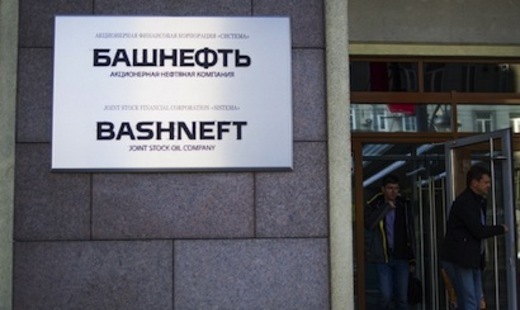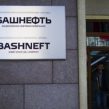
Cossacks Seek Greater Role in Southern Russia’s Economic and Political Life
Publication: Eurasia Daily Monitor Volume: 12 Issue: 130
By:

On June 26, the ideologue of free Cossakia Grigory Kuznetsov (a. k. a. Vladlen Alyabyev), reiterated his vision of an independent Cossack territorial entity in a brief manifesto. The Cossack leader did not explicitly state that Cossakia should seek independence from the Russian Federation, but strongly suggested the need to explore this route. Cossacks should have their own “national leaders who are elected at the Cossack Council and who depend on the choice of the nation, not on the decrees of the aliens from the bordering state,” the activist wrote. Kuznetsov lamented Moscow’s current policy of appointing Cossack leaders who do not care about the well-being of the Cossack nation. The Cossack leader enumerated all the benefits that Cossakia would enjoy as a separate nation state, adding that the “ultimate goal of the Cossack nation, like any other intelligent species living on the Earth, is the establishment of its own civilization. That is the benchmark, the Everest that our people need to take on with all determination!” Apparently, one of the primary motivators for the manifesto was President Vladimir Putin’s recent decision to hand over a large share of the Bashneft oil and gas company to the government of Bashkortostan. Kuznetsov pointed out that even if Cossakia stays within the limits of Russia, it should form a separate Cossack Republic to have the same benefits that other republics within Russia enjoy (Prisud.com, June 26).
Historically, the Cossacks were quite independent from Imperial Moscow, but over time Russia’s emperors increasingly took over control of the group. The Cossacks played a pivotal role in the expansion of the Russian Empire in the 18th and 19th centuries as a special militarized social class, often spearheading Russian expansion and playing the role of the first settlers in newly conquered territories, such as the North Caucasus. Following the 1917 revolution, Bolshevik reprisals decimated the Cossacks, and they were abolished as a class. Even a special policy of “decossakization” (raskazachivanie) was named. Since the Cossacks had weak ethnic identity, they quickly became assimilated into Russian society despite the fact that many Cossacks, particularly those of the Don, Kuban and Terek Cossack forces, were of Ukrainian origin. At the end of the Soviet period in 1991, Cossack groups sprang to life across the Russian Federation, especially in southern Russia. Cossacks soon became actively involved in Russia’s covert wars in the post-Soviet countries, but their hopes to establish a separate non-Russian identity were dashed. However, the idea of independent Cossakia remains alive and finds support among some Cossacks.
Supporters of the Free Cossack Movement view Cossakia as a territory with three Cossack forces—Don, Kuban and Terek. These Cossack forces broadly correspond to the three existing territorial entities in southern Russia—Rostov oblast, and the Krasnodar and Stavropol regions. Instead of the Cossack slogan from the Russian Empire’s era—“For Faith, Tsar and Fatherland!”—the Free Cossack Movement is advocating a new slogan: “For Freedom, Faith and Cossack Land!” The Free Cossack Movement called on Cossack groups to refrain from supporting Moscow’s imperialism (Kavkazskaya Politika, July 6).
The Free Cossack Movement dates back to 2008, when the principles of the movement were first published. In 2009, self-declared Cossack nationalists gathered for the first time, holding a meeting in the city of Rostov-on-Don at which they agreed on the movement’s principles, including the idea that that the Free Cossack Movement was a movement for national liberation of the Cossack people. The movement aimed at establishing a Cossack national autonomy in historical Cossakia, which includes the territory of the Don, Kuban and Terek Cossack forces. The principles of the movement do not allow non-ethnic Cossacks to become members of the movement. This insistence on Cossack ethnic purity appears aimed primarily at preventing ethnic Russians from becoming members and leaders of the Cossack movement (Prisud.com, accessed July 13).
Currently, the Free Cossack Movement’s plans for a homeland may appear to be entirely unrealistic. Regardless, Cossacks and Russian nationalists have continued to seek the creation of a Russian Republic in the Stavropol region, the only majority-ethnic-Russian region in the North Caucasus, and separate it from the North Caucasian Federal District. So far that attempt has failed, but the Cossacks still feel they are not well represented in southern Russia, where they believe their homeland is, and have expressed their dissatisfaction with the status-quo. Many Cossacks feel disempowered in the North Caucasus republics, where they have been sidelined and marginalized. At the same time, many Cossack leaders still count on Moscow and reject the need to create a special Cossack identity (Kavkazskaya Politika, July 6).
The Free Cossack Movement is currently not a major political movement in southern Russia. However, if the central state is sufficiently weakened, their ideas may become more popular. Even those Cossacks who are supportive of their Russian identity say that Cossacks have the right to their own republic because the North Caucasians have their own republics. As long as Moscow does not abolish the North Caucasus republics, the Cossacks will continue to demand political autonomy. Self-determination for the Cossacks would arguably be the greatest stride toward the true federalization of the country because it would increase the demand for political autonomy in regions of Russia with majority-ethnic-Russian populations.




